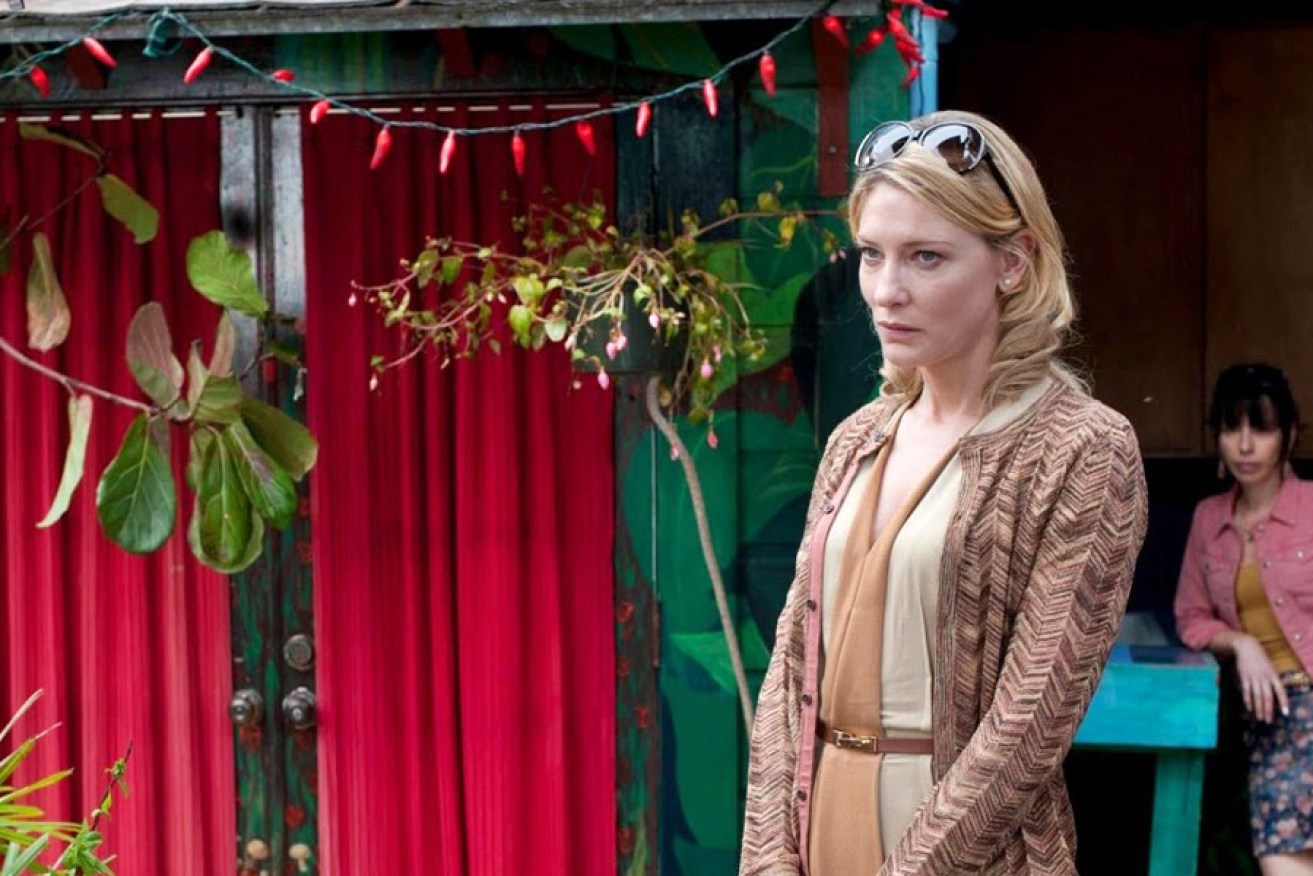Writer and director Woody Allen is back in top form with this misanthropic comedy. This feat is due in no small part to the brilliant performance of Cate Blanchett, who manages to invest the free-fall descent into ruin of her character, Jasmine French, with the mesmerising tragedy of a train wreck. It is brutal, but you can’t look away.
The film opens with Jasmine arriving in San Francisco, apparently broke but still flying first class, the bewildered victim of a Madoff-style financial scandal involving her former husband, Hal (Alec Baldwin). Now homeless and friendless, she is forced to rely on the generosity of her estranged sister, Ginger (Sally Hawkins).
Ginger, a divorced mother of two who works in a grocery store, lives in a vastly different world to her Park Avenue sister. She has barely seen Jasmine since her marriage to Hal and is nursing an old grudge as a result of having lost her and her then-husband’s (Andrew Dice Clay) life savings to Hal in one of his dodgy financial schemes.
Once installed in Ginger’s claustrophobic apartment, Jasmine’s already fragile composure begins to crack. Pinched between the competing realities of her privileged but self-deluded past and her desperate present, her descent towards complete ruin steadily gains momentum.
Over the ensuing few months, Jasmine settles into an uneasy existence at her sister’s place, eventually taking a job she had at first dismissed as insultingly menial, working as a receptionist for a dentist (Michael Stuhlbarg). But Jasmine and Ginger constantly clash, often about Ginger’s blue-collar boyfriend Chili (Bobby Cannavale), who justifiably resents Jasmine’s unrelenting condescension and snobbery.
In many ways, Blue Jasmine is a contemporary reimagining of Tennessee Williams’ A Streetcar Named Desire, with Blanchett channelling a particularly toxic and pretentious Upper East Side version of Blanche DuBois, whose rapidly fraying mental state is unsuccessfully hidden by designer clothes and self-medication with Xanax and Stolichnaya.
Allen is clearly trying to break away from his usual themes by tackling class in a way that could be interpreted as a kind of post-global-financial-crisis fable. However, in doing so he has intensified his usual dose of misanthropy. The depiction of Jasmine is downright cruel. This is an unrelenting humiliation of a woman who is not just pretentious and delusional, she is also an alcoholic and mentally ill.
The fact that a film with this depth of tragedy works, despite being billed as a comedy, is a tribute to the brilliant performances of the cast and one of the most polished pieces of direction by Allen in recent times.






